The InnoFuels project is about driving forward the rapid ramp-up of electricity-based and advanced biofuels and providing players with concrete planning approaches. The platform brings together research institutions, manufacturers from the automotive, aviation and shipping industries, energy suppliers and federal and state ministries. The network is complemented by associated partners who contribute their expertise. InnoFuels is the first and so far only networking and exchange platform for electricity-based and advanced biofuels - organized in seven thematic fields of activity.
Rolling cameras for InnoFuels: The project in motion
Each of the seven subject areas - production, supply chain, aviation, shipping, rail & road, sustainability and market & regulation - is presented in a separate video. In addition, an overview video summarizes the entire project. The first three videos are already available - take a look!
Participation welcome
Upcoming Workshops
The InnoFuels platform regularly organises workshops and other events that are open to anyone who is interested. These events are designed to provide expert input, facilitate knowledge sharing and enable networking among all participants. The individual Innovation Focus groups host the events. Participation in the workshops is free of charge. The three most recent events are listed below. You can find more on the events page. We look forward to seeing you there!
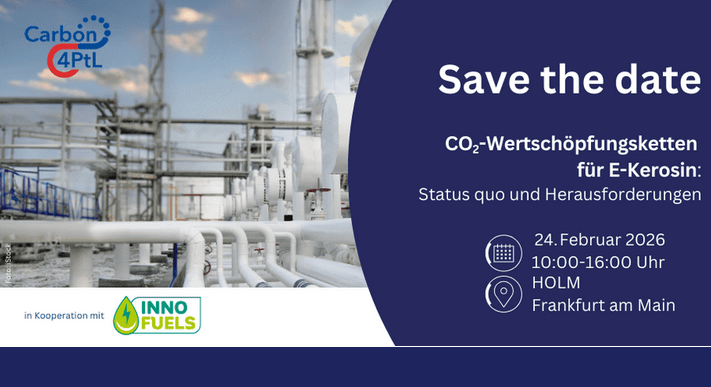
In order for CO₂ to be used as a resource for the industrial production of synthetic kerosene in the future, functioning value chains are needed – from supply and capture to transport and processing to application in power-to-liquid processes. These are precisely the issues that will be addressed at the specialist event on February 24, 2026, in Frankfurt. The event is being organized by the Carbon4PtL project in cooperation with InnoFuels and will bring together experts from politics, administration, industry, and research to exchange experiences and discuss joint approaches to establishing sustainable CO₂ value chains.
Learn more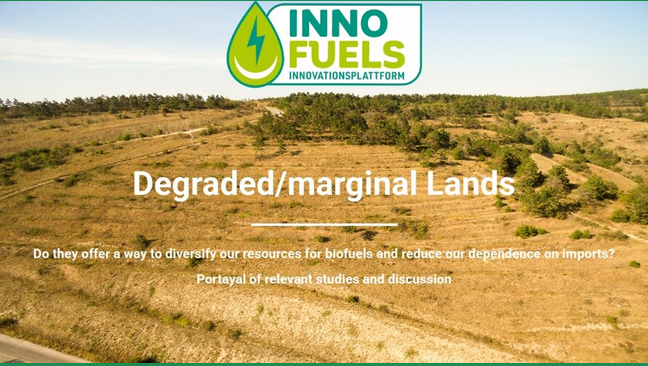
The European Union wants to reduce its dependence on fossil fuels and increase the use of renewable energies – biofuels play a central role in this. One way to diversify resources and reduce imports is to use degraded or marginal land. In this online workshop on April 15, current studies and research projects will be presented and the potential, opportunities, and challenges of these areas for biofuel production will be examined. International experts will share their experiences and provide insights into possible strategies and solutions. Workshop in English.
Mehr erfahren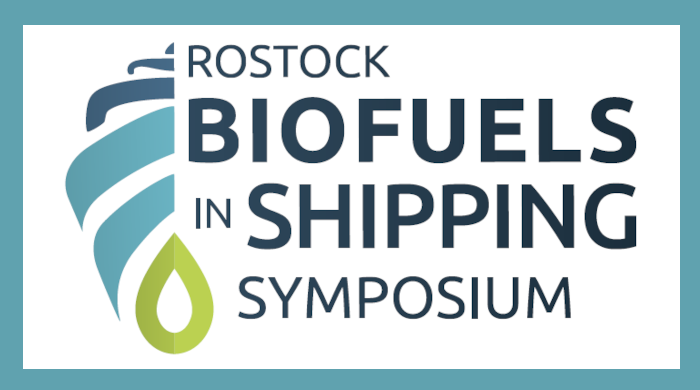
Liquid drop-in biofuels and innovative additives are considered promising solutions in the shipping industry, but bring with them numerous technical, economic and regulatory issues. To shed light on these together with you, we invite you to the InnoFuels Symposium on April 21, 2026 in Rostock. The symposium is being organized by the LKV Rostock and the Research Center for Internal Combustion Engines and Thermodynamics Rostock (FVTR). Representatives from authorities, fuel manufacturers, engine and component producers as well as users from the field will provide insights along the entire value chain. Companies such as Everllence, Infineum, Finco and Hapag-Lloyd will report on practical experience, current developments and future challenges.
Learn moreNews and current events
What's new with us? Here we share current topics, insights into our work, and previews of upcoming activities.
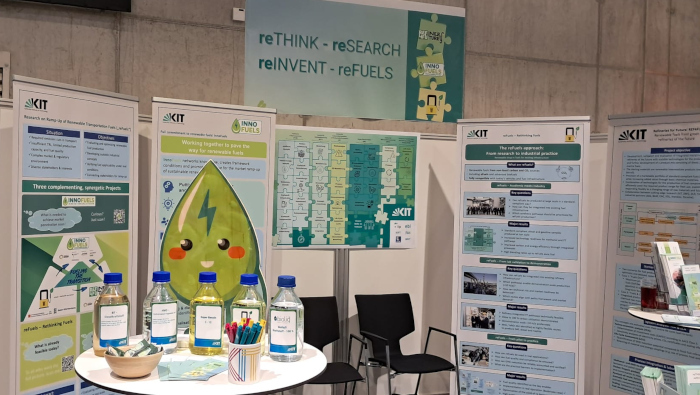
Over 620 participants from politics, business, and science gathered in Berlin on January 19–20 to discuss the role of renewable fuels in climate-neutral mobility. The InnoFuels team actively contributed to the technical dialogue with several high-profile presentations. The focus was on the reFuels approach as a bridge between research and industrial practice, as well as the challenges and prospects of synthetic fuels. The presentations impressively underscored that the technologies are available—now reliable political and regulatory frameworks are needed for the market ramp-up.
Learn more
This short video provides an exclusive insight into the work of the Shipping Focus Area: It shows how the team analyzes the key challenges of maritime mobility and develops practical solutions. It addresses specific questions such as: What adjustments are needed for ports, bunker systems, and tank farms? What regulatory measures could drive the market ramp-up of renewable fuels in shipping? Watch the video to see how the focus area combines goals, challenges, and working methods, laying the foundation for the practical use of climate-friendly maritime fuels— an exciting look behind the scenes of this InnoFuels area.
Learn more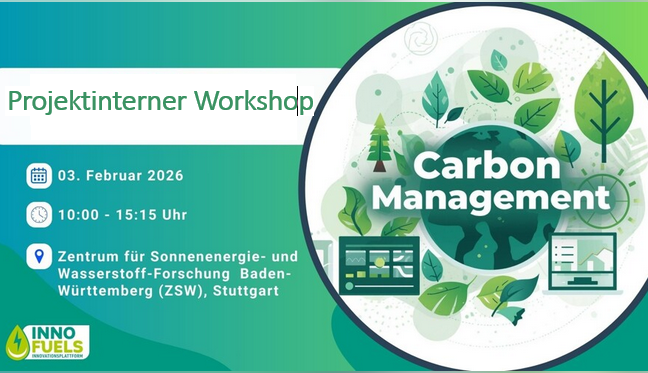
The focus is on current (inter)national developments in carbon management as well as industrial perspectives on CO₂ demand, quality, and recycling, and approaches to biomass recycling. Building on this, the project participants will discuss how carbon management can be integrated into the project's innovation priorities, which activities should be prioritized, and how CCU can be systematically evaluated in comparison to CCS—including questions about CO₂ infrastructures and utilization pathways. The aim of the workshop is to create a common understanding and derive key ideas for further work on the project's content.

At Fuels of the Future 2026, experts from research and industry once again discussed the future of sustainable energy sources. The InnoFuels team also made several expert contributions, addressing topics related to the ramp-up of reFuels: from the transfer of research into practice, to cost and market ramp-up, to international partnerships and new production concepts. The presentations showed how important the interaction between research and industry is for the further development of renewable fuels. Fuels of the Future 2026 provided the perfect setting for this with exchanges, discussions, and networking.
Learn more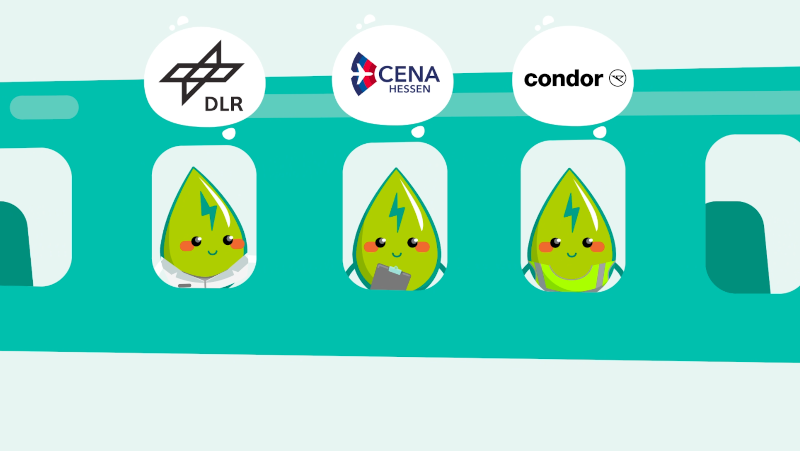
A new short film about InnoFuels is ready! It focuses on the innovation focus area of aviation and shows the challenges, goals and tasks that the team deals with on a daily basis. The film makes it clear how multifaceted the work in this focus area is: In addition to technological issues, the cooperation between different players along the value chain is also highlighted. In just two minutes, it becomes clear what contribution the aviation team makes to the overall goal of the InnoFuels project.
Learn more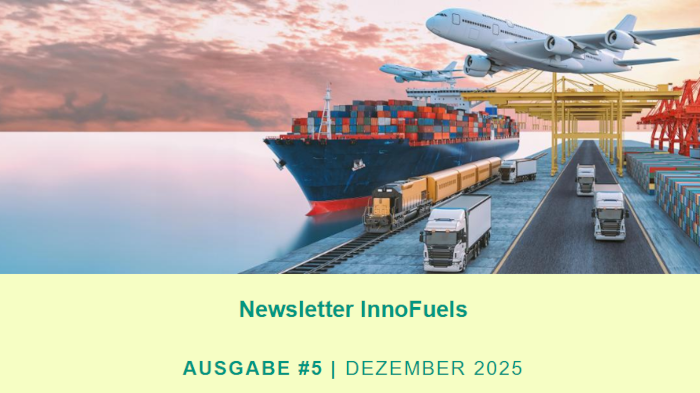
We are delighted to present the latest issue of our InnoFuels newsletter!In this issue, we look back on exciting developments of the last few months, including insights into past events and current projects - from practice-oriented workshops to international formats.
You will also find an outlook on upcoming events in 2026 and an overview of our latest publications. A special highlight is our short film, which vividly illustrates InnoFuels' work in the field of renewable aviation fuels.
Learn moreFunding
Project InnoFuels is funded with a total of 5,24 million euros by the Federal Ministry for Transport as part of the Funding Programme Renewable Fuels. The funding guideline for the development of renewable fuels is coordinated by NOW GmbH and supported by the project management agencies VDI/VDE Innovation + Technik GmbH and Fachagentur Nachwachsende Rohstoffe e. V. (Agency for Renewable Resources.


